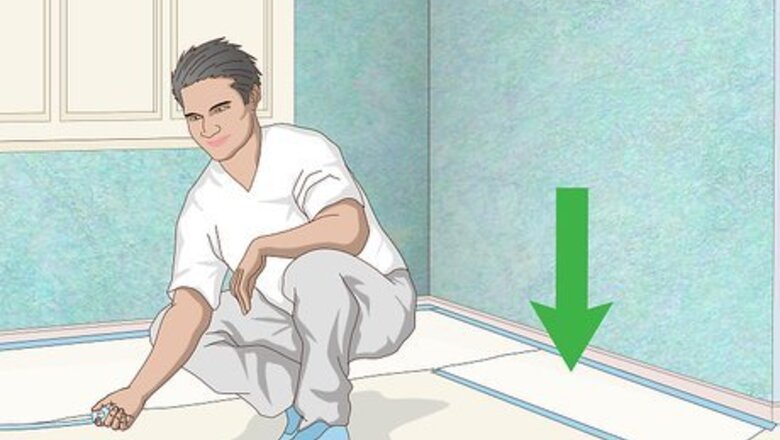
views
Setting Up the Room
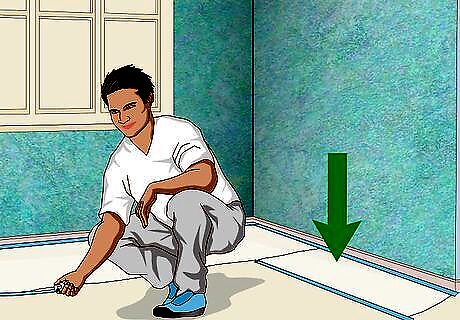
Lay down plastic to protect your floors. Tape long sheets of plastic to the base of your floor, sealing the plastic to the wall. Lay towels or old blankets over the plastic for extra protection, as stubborn wallpaper takes a lot of water to remove. Use painter’s tape to seal the plastic to the floorboard in order to create the waterproof seal. Whether you have carpet or wood floors, laying down protective covering is an important step before removing wallpaper.
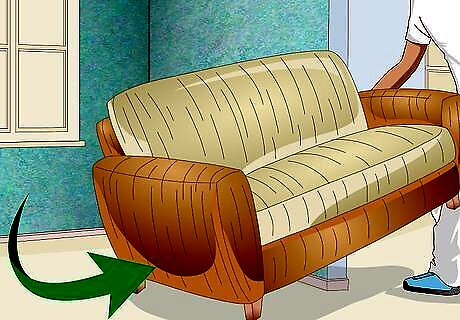
Move any furniture to another room. Couches, chairs, tables, and dressers should all be taken out of the room so that you can easily move around the room. Move everything to another room or a hallway for easy access to all four walls. If you cannot take the furniture out of the room, relocate everything to the center of the room so you can access each wall. Removing furniture from the room or covering it in plastic will also ensure that nothing is damaged by water or debris.
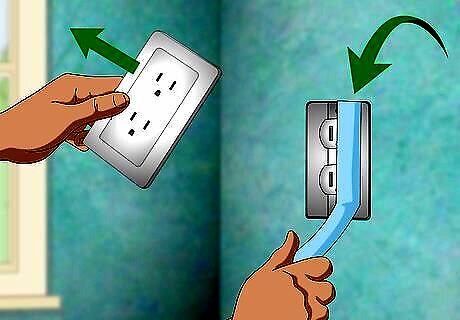
Remove and cover the room’s outlet covers. There will be wallpaper under each outlet cover, and these areas often act as great starting points for removing wallpaper. Unscrew the two screws that attach the outlet cover to the wall, and set them in a safe place. Scrape away the wallpaper with a putty knife and cover the exposed outlets with plastic and tape. Because you will be dealing with water to remove the wallpaper, covering the exposed outlet is an important safety measure.
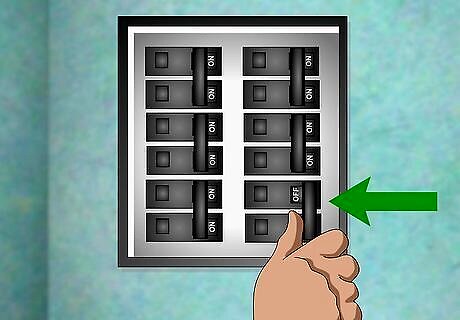
Turn off the room’s electricity. Locate your home's circuit breaker and flip the breaker associated with the room you will be working in. Double check that you have the right room by plugging in an electronic device, such as a lamp or phone charger, and seeing if it works. If you need extra light in the room, buy some large lamps and plug them into another room’s outlet with extension cables.
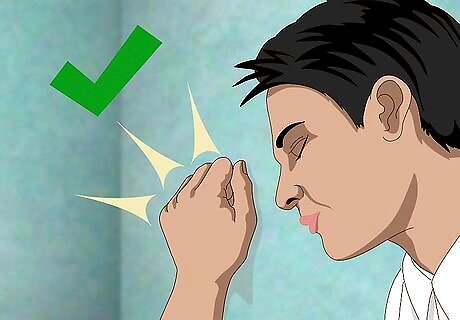
Identify the kind of wall you are working with. Knock on your wall and listen to what kind of sound it makes. Be especially careful if you hear a hollow, empty sound, as this is indicative of drywall and is easily damaged. Listen for a dull sound, as this is indicative of plaster and is more durable. If your wall is made of drywall, be especially careful when scraping off the wallpaper, as it is more fragile than plaster.
Removing Peelable-Top-Layer Wallpaper
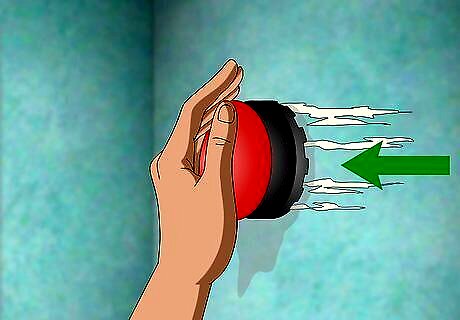
Use a scoring tool to puncture holes in the wallpaper. Purchase your scoring tool online or at a local hardware store. Press the scoring tool into the wallpaper, creating as many small punctures in the wallpaper as possible. Go over the entire wall, or until you feel like every section of the wallpaper is covered by small holes. Scoring tools are palm-sized, round tools that are used specifically for wallpaper removal.
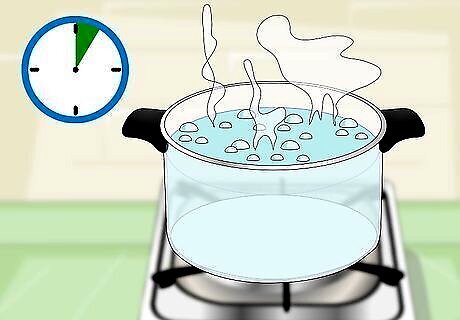
Bring water to a boil and let it sit for five minutes. Fill your largest pot with water and place it on the stove at the highest heat possible. Wait until the water begins to boil, and then turn the heat off. Let the water cool until you are able to comfortably touch the water, and pour it into a large container.
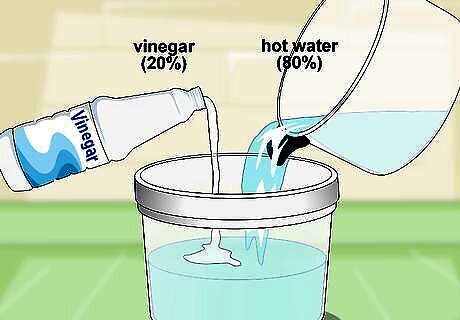
Combine water and a solvent to create your removing solution. Mix your hot water with laundry detergent or vinegar into the large bucket or container. The solution should be half laundry detergent and half water, or 80 percent hot water and 20 percent vinegar. Keep the solution warm by adding hot water whenever the solution cools. Your solution should stay warm for 10 to 15 minutes before needing to be reheated.
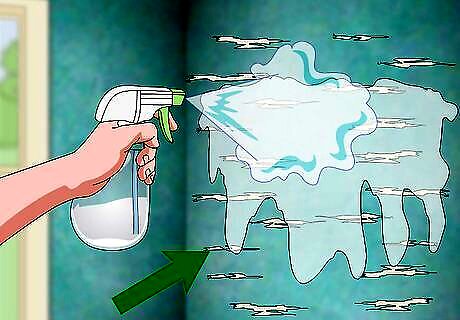
Soak your entire wall with the water solution. Use a spray bottle or sponge to coat the center of your wall in the solution, and paint rollers to soak the tops of the wall. Apply the water solution until the wallpaper becomes fully soaked, focusing on the small holes that were created by the scoring tool. By soaking your walls in sections, you are able to keep moving and working while the solution soaks into the paper.
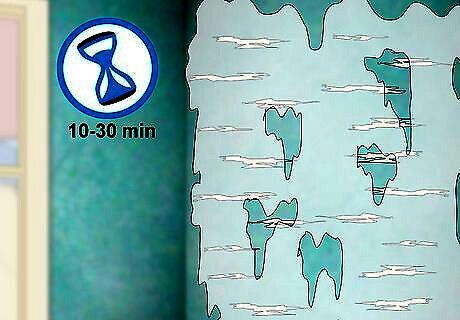
Let the solution soak into the wallpaper for at least 10 to 30 minutes. Allow the wallpaper to absorb the water, reapplying the solution to the areas that dry first. Focus on wetting the tops and bottoms of the walls, as these are where you will begin to peel the wallpaper. Keep the wallpaper soaking until you begin to peel.
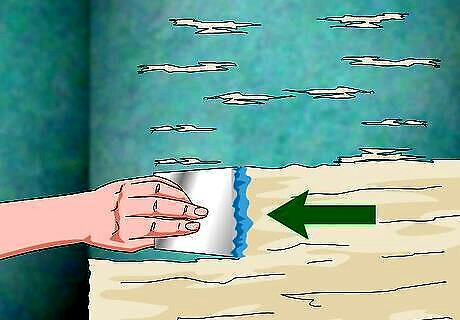
Use a putty knife to remove the wallpaper and adhesive. Avoid using sharp edges to remove the wallpaper, as these could damage your walls. Begin at the bottom of the wall and work your way up, removing the wallpaper one strip at a time. Be as patient as you can, removing small sections of the wallpaper if it does not come off easily. Depending on your wallpaper, it may come off the wall in large sections, or in small, tiny strips. You can purchase a rounded-edge stripper or putty knife online or at your local hardware store.
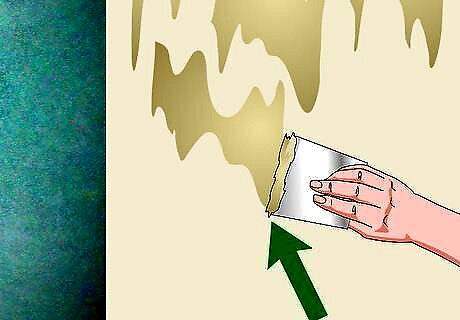
Remove the adhesive that was behind the wallpaper. Work your way up the wall, as you did with the wallpaper, soaking the adhesive with the water solution as often as needed. Use your putty knife to carefully pull the adhesive off the wall. If the underlying adhesive is difficult to remove, soak it directly with your solution and scrape gently until it is gone.
Removing Traditional Wallpaper
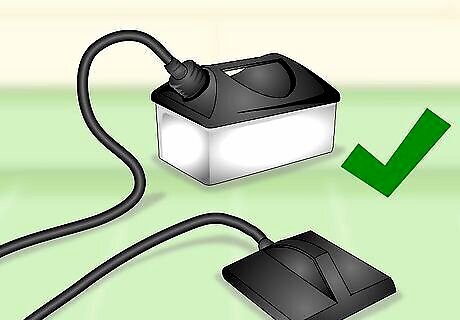
Purchase or rent a wallpaper steamer. Use a wallpaper steamer if the wallpaper has been painted over or if it was applied a very long time ago. Find a wallpaper steamer through an online search or by visiting a local hardware store.
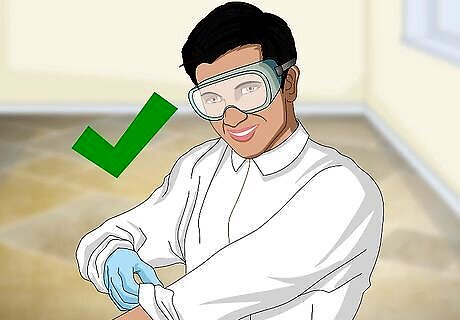
Purchase protective gear for safety. Buy rubber gloves and protective eyewear to protect yourself from boiling water. Wear long sleeves and multiple layers while operating the tool. Do not operate a wallpaper steamer without these protective tools, as you will get burnt if there is any mechanical malfunction. Although wallpaper steamers are safe to use, they will sometimes leak or break.
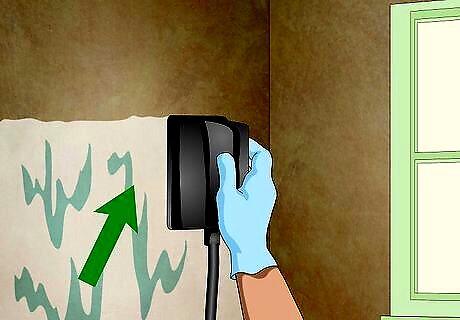
Steam small areas of the wall and remove the wallpaper. Hold the steamer in one section of wallpaper for at least 30 seconds, or as long as it takes to soak all the way through. Start this process wherever feels most comfortable, but consider beginning in more difficult places, like the tops or bottoms of the wall. Start on one side and work your way toward the center.
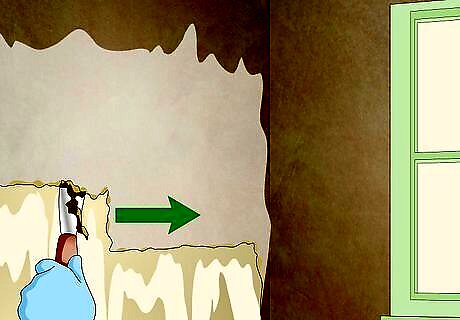
Use a putty knife to gently and fully remove the wallpaper. Press the putty knife into the soaked wallpaper, carefully pulling back a single piece. Use this removed piece to slide the putty knife under the wallpaper. Slide the putty knife under the wallpaper, carefully pulling it from the wall. Take care not to dig the edges of the putty knife into the wall.
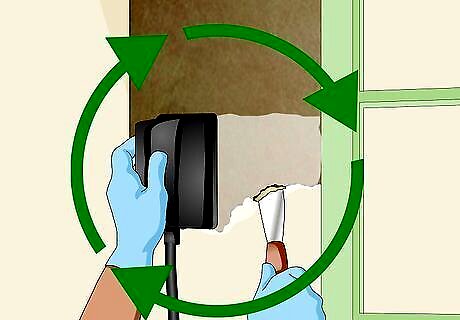
Continue this process in sections until the wallpaper has been removed. After each 30 second soaking section, set down the steamer and carefully remove this section of wallpaper. Stop scraping once you reach a dry area. If you started at the bottom of the wall, work your way up, removing each section until you reach the ceiling.
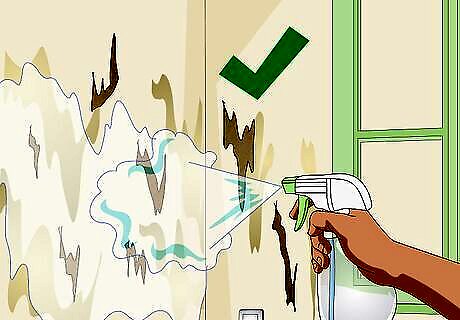
Use a stripping solution if there is any left over adhesive. Pour a mixture of hot water and laundry detergent or vinegar into a spray bottle or bucket. Spray or apply the mixture to the leftover adhesive and scrape the substance from the wall with a putty knife. Continue this process until the wall is completely bare.


















Comments
0 comment